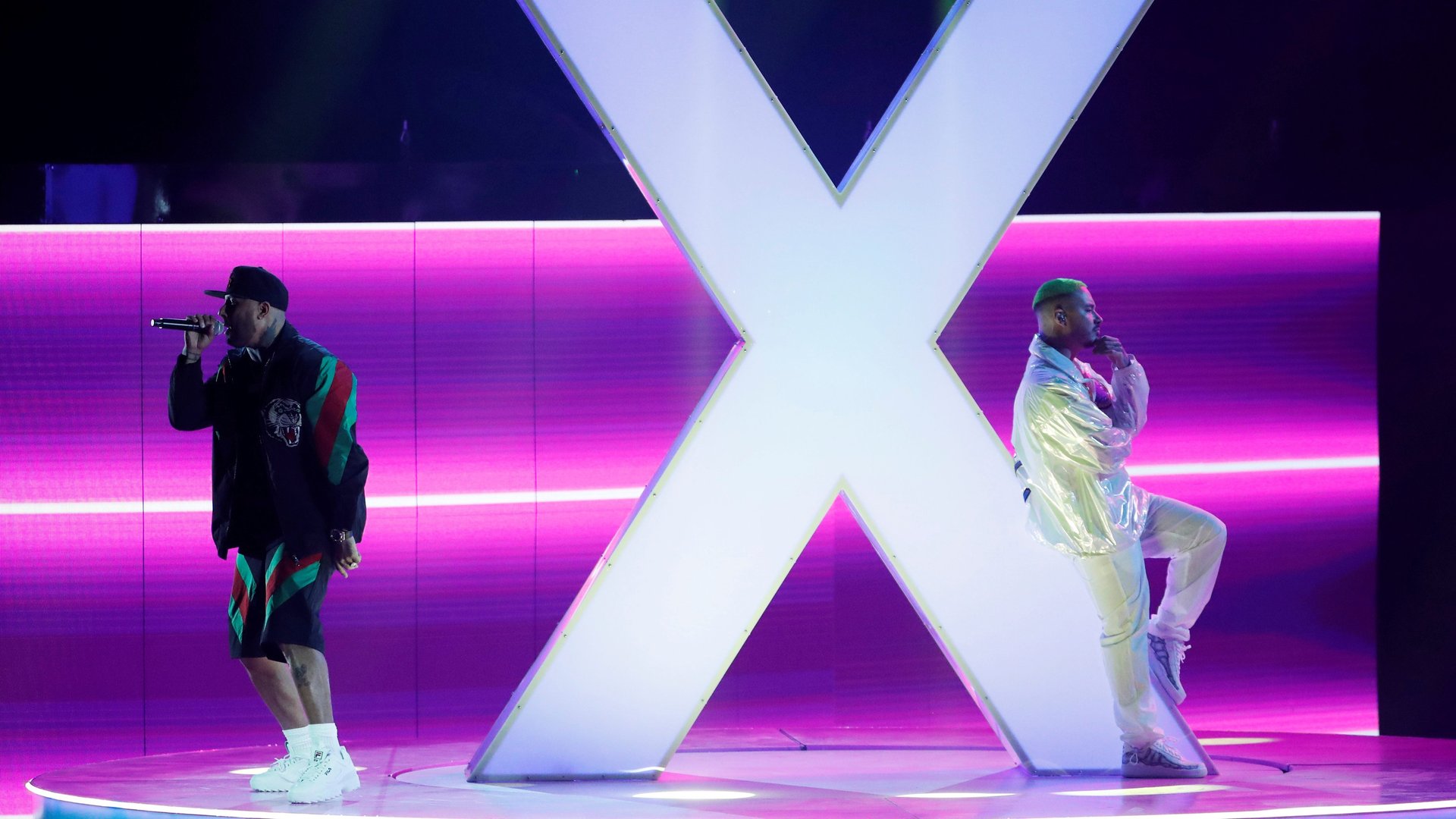The rise of all-lowercase and all-uppercase song titles
On Ariana Grande’s first three albums, she was restrained by the rules of grammar. The titles of her songs, including hits like “Break Free” and “Into You,” were capitalized in the conventional style: first letter of the first word, plus all nouns and active verbs. But no longer. On her 2018 album Sweetener and 2019’s thank u, next, only two of Grande’s 27 songs include a capital letter (“R.E.M.” and “NASA”). She even decided that hits like “break up with your girlfriend, i’m bored” and “no tears left to cry” were fine in only lowercase.


On Ariana Grande’s first three albums, she was restrained by the rules of grammar. The titles of her songs, including hits like “Break Free” and “Into You,” were capitalized in the conventional style: first letter of the first word, plus all nouns and active verbs. But no longer. On her 2018 album Sweetener and 2019’s thank u, next, only two of Grande’s 27 songs include a capital letter (“R.E.M.” and “NASA”). She even decided that hits like “break up with your girlfriend, i’m bored” and “no tears left to cry” were fine in only lowercase.
Grande is not alone. Billie Eilish, whose hit “bad guy” is currently the No. 1 song in the US according to Billboard, also eschews capital letters in song titles; she appears to have saved them all for her debut album’s title: WHEN WE ALL FALL ASLEEP, WHERE DO WE GO? Other artists with all-lowercase hits include Post Malone (“rockstar”) and XXXTENTACION (“changes”).
Meanwhile, a number of musicians are swinging the other way. For 2017’s Pulitzer Prize-winning album DAMN., Kendrick Lamar went all caps. Artists J Balvin; Tyler, the Creator; and Daniel Caesar all followed suit, among many others. Travis Scott goes both ways: He went all lowercase for the songs on 2016’s Birds In The Trap Sing McKnight and all uppercase for the songs on 2018’s ASTROWORLD.
Quartz analyzed the data, and this is a trend with legs. In the last week of December 2018, just eight of the 200 songs on Spotify’s top 200 streaming songs were either all uppercase or all lowercase. In 2019, more than 30 songs in a typical week have non-standard capitalization.
So what’s going on? Do millennials have a thing for E.E. Cummings?
The most likely answer is that this is a manifestation of artists growing up in the texting and social media era. Ariana Grande (26), Billie Eilish (17), and Travis Scott (28) have spent much of their lives communicating by text message, Snapchat, Instagram, and Twitter, and their capitalization choices show it.
Though writing has historically been a more formal way of conveying information, these newer methods are informal. Writing in all lowercase is intended to signify a lack of stuffiness, and has become so popular that many people now turn off the autocorrect in their texting app that capitalizes the first letter of sentence. Linguistics professor Lauren Fonteyn told Mashable that many people are beginning to ignore this “non-functional” grammar rule so they can use capitals for other purposes. The lowercase default allows the writer to employ capital letters for accentuation or sarcasm.
The choice to use uppercase is simpler. All caps is generally used for emphasis. Katy Waldman at Slate points out that Twitter and some other texting apps don’t allow for italics and boldface, which makes capitalization an increasingly important way to show enthusiasm.
Young musicians are using the tools of their generation to title their songs. It’s changing the actual look of the pop charts, and mostly for the better, by offering more variety and style. BRING ON THE ERA OF WEIRD CAPITALIZATION.